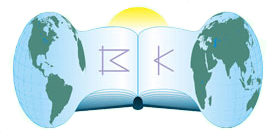On September 5 2017, NNRI “Knowledge Caravan” s Discussion Club held its first meeting to debate the subject of “Central Asia-2.0: Research Problems”.
The seminar identified the below research topics in need of a further exploring:
1.Balkanization. Is the “Balkanization” concept real and was the forecast justified?
2.Re-islamization after independence. Is there an ongoing radicalization process within the territory of Central Asia?
3.Integration of Central Asia.
4.Is the EU experience applicable to Central Asia?
5.The problem of understanding the terms of “threat” and “security”
6.Geopolitical discourse of the USA, Russia and China in the Central Asian region.
7.Research methodology: Realism vs constructivism.
8.The crisis of liberalism.
The seminar participants discussed accumulated research problems within the expert community, namely:
1.Problems of theories, methods and methodologies of research.
2. The conceptual problems in understanding theories of “modernization”, “threat”, “security”, etc.
3.The field research problem.
4. The research approach problem. The lack of inter-sectoral and interdisciplinary research.
5. The absence of ordered systemic research both at the republican and Central Asian level.
6. Missing support from the state and organizations for conducting Central Asian studies.
7. A limited use of quantitative research methods in political science, due to the lack of specialists. The seminar discussed the work of A.A. Gafurov. “Politmetrics: analysis and optimization of social development”. The author models the world’s social and political processes via applying mathematical analysis methods.
8. The problem of research works’ publishing and limited access to new libraries, seminar platforms to exchange views in the region and at the international level.
During this discussion, the experts noted the local lack of research institutions uniting the scientific and expert community of Uzbekistan. There is no scientific platform where scientists, experts and students could meet with a view to discuss academic problems, present their works and have an exchange of opinions, ideas and research.
The first seminar indicated at a huge interest within the academic environment to actively interact and cooperate with each other and carry out extensive research. The Discussion Club will conduct its seminars on a regular basis.
